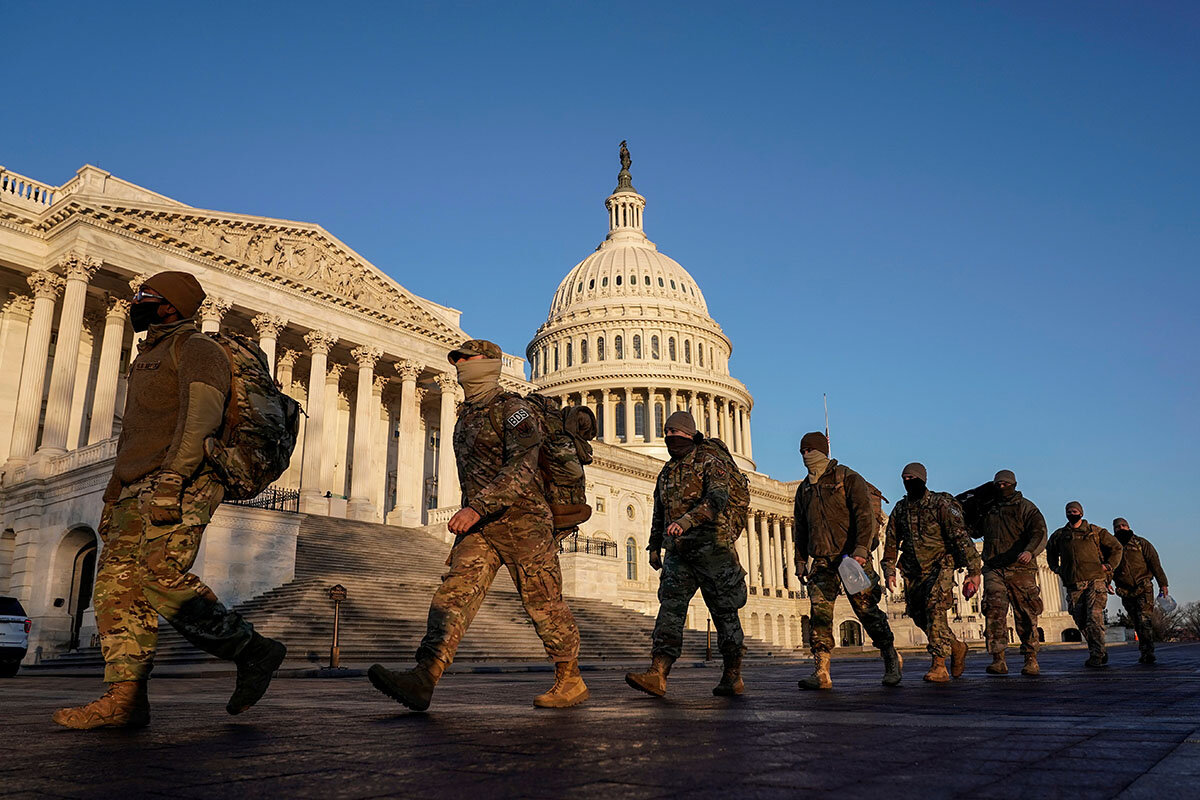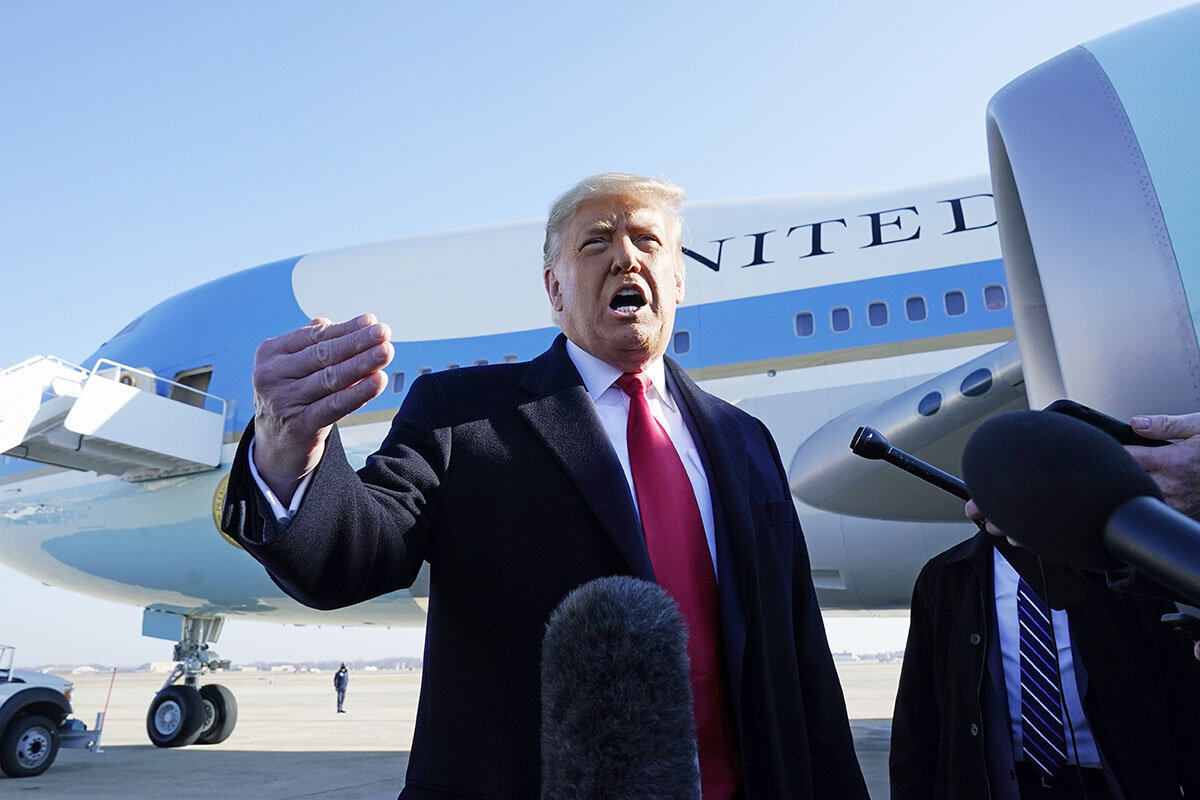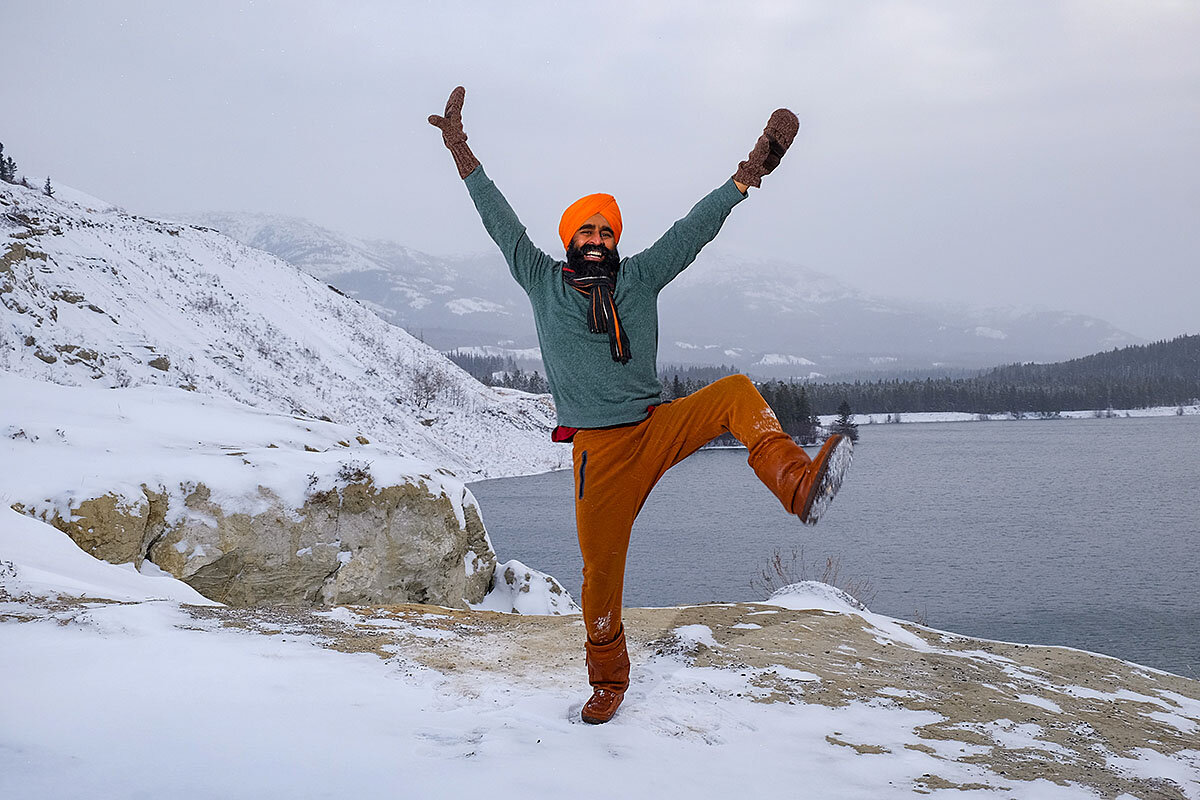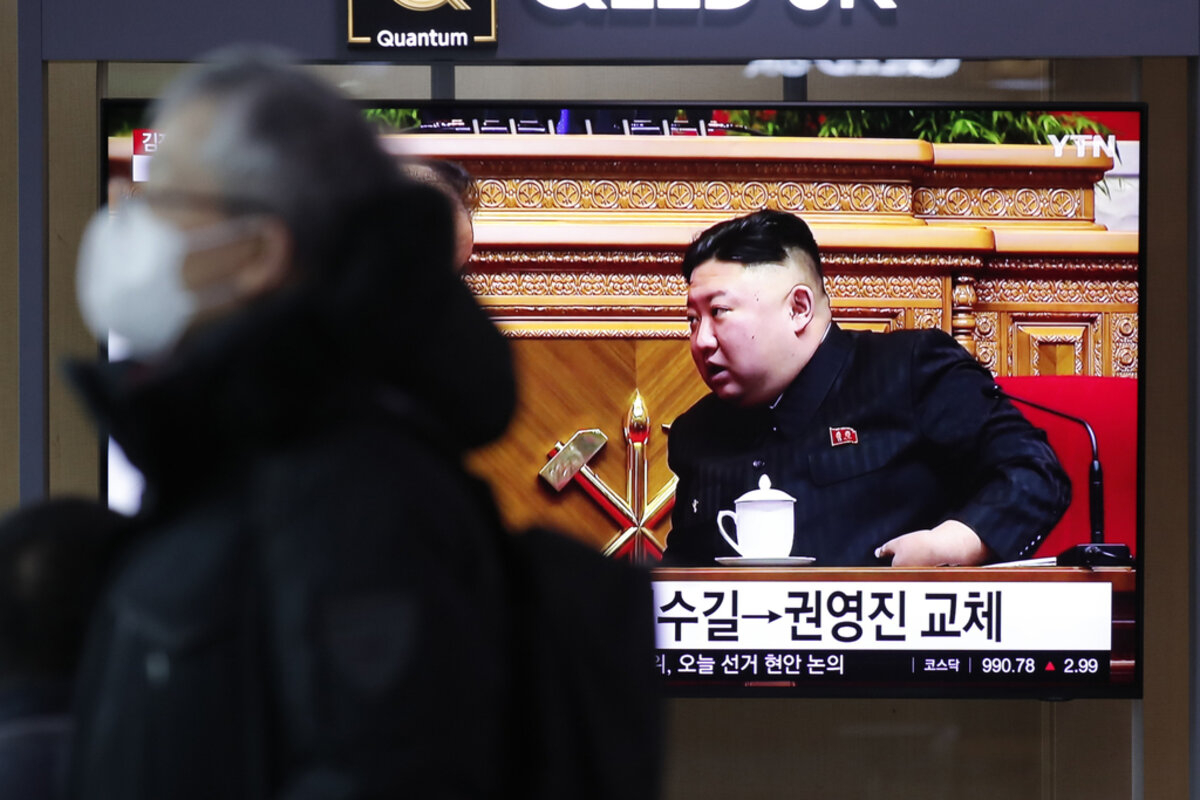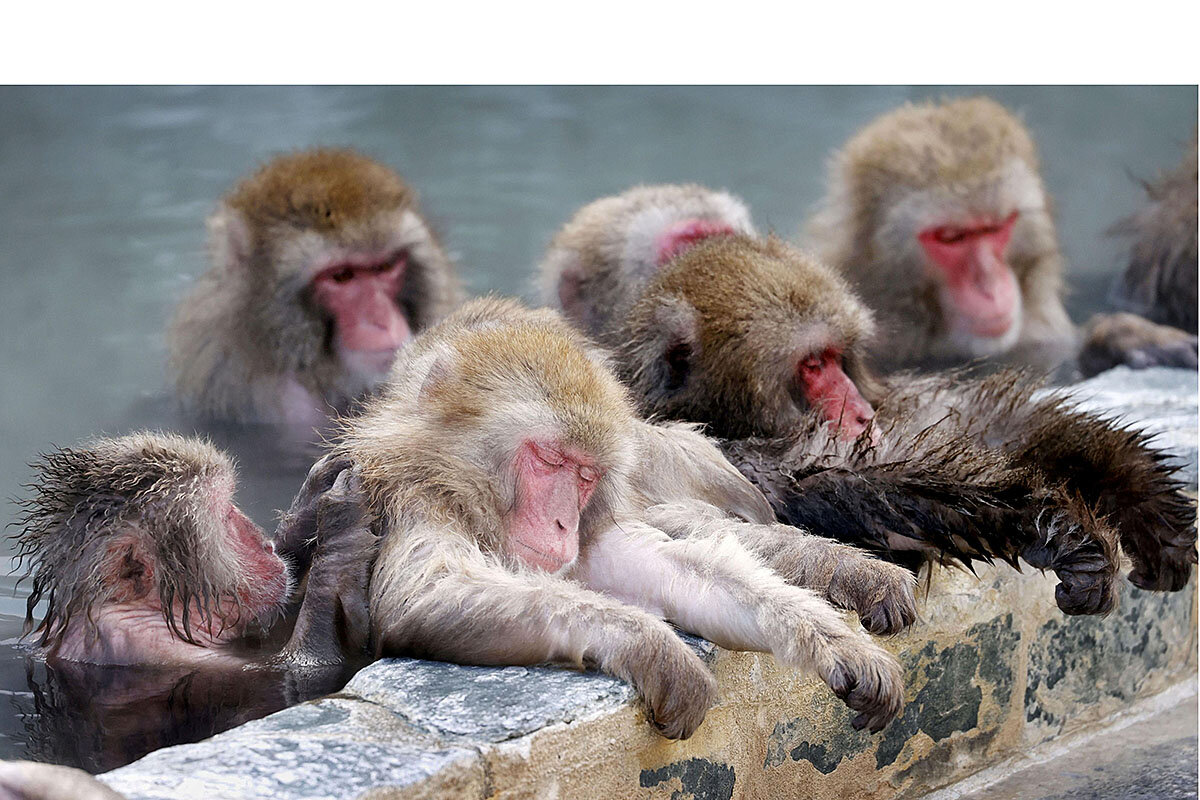Mike Pence’s top task as Donald Trump’s vice president was to be loyal. Now, his loyalty to the Constitution has put him in a political no man’s land.
Monitor Daily Podcast
- Follow us:
 Mark Sappenfield
Mark Sappenfield
There was a moment last Wednesday when Capitol Police officer Eugene Goodman was all that stood between an angry mob and the floor of the United States Senate.
The split-second decision he made has been hailed as heroic. He led them away, giving security officers time to get senators, staff, and reporters to safety. Wrote Sen. Bob Casey: “His quick thinking and decisive action that day likely saved lives, and we owe him a debt of gratitude.”
Given the security failures and concern about next week’s inauguration, attention has focused on poor preparation and officers who encouraged rioters. But Mr. Goodman’s act speaks to those D.C. and Capitol police who endured verbal abuse and physical attacks with wrenches, pipes, and fists to protect the Capitol, those inside, and American democracy.
Two officers who served in the Iraq War “said this was scarier to them than their time in combat,” the acting D.C. police chief . One Black officer sat in the Rotunda after the riot ended, openly crying. “I got called a [N-word] 15 times today,” he yelled to no one in particular, .
Mr. Goodman’s standoff underlines the progress so sorely needed, a former New York City cop : “to see a black man being chased by someone carrying a Confederate flag – there is something wrong with that picture. ... It just reeks of everything we need to correct.”





